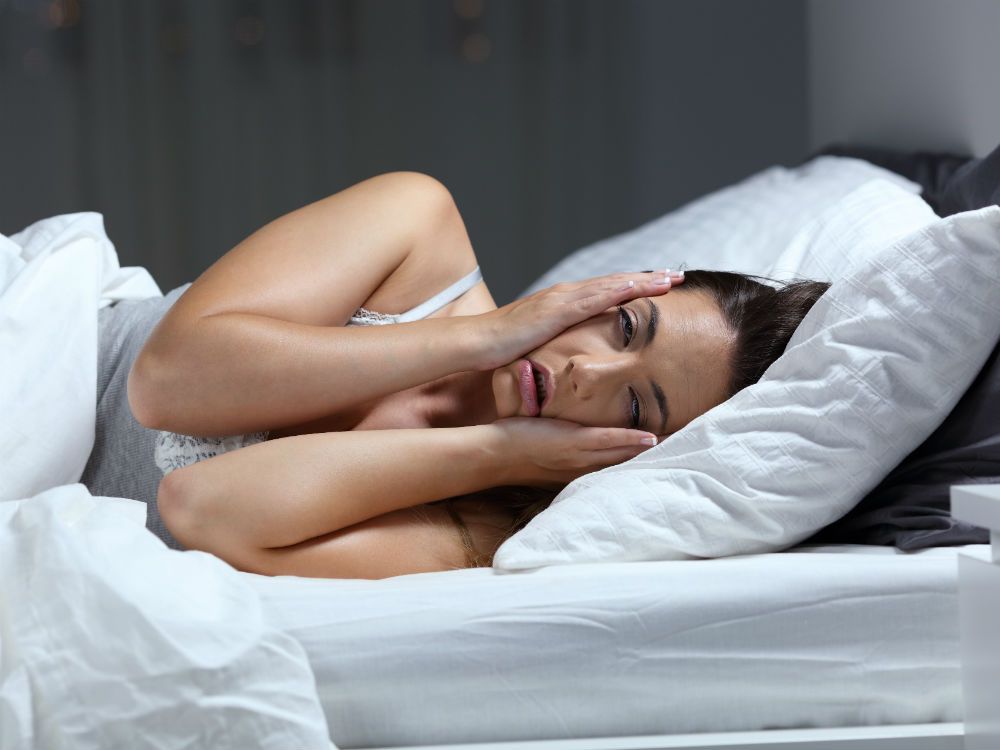a year after the world health organization declared covid-19 a global pandemic, countless canadians are struggling to cope with coronasomnia — a stress-induced inability to get a good night’s sleep.for many, the arrival of world sleep day on march 19 will serve as nothing more than a painful reminder of what has been lost to an increase in anxiety brought about by forces beyond their control.
according to a survey of the sleep habits over 13,000 people in 13 countries by philips, just 55 per cent of respondents were satisfied with their current quality of sleep. it found people were hitting the hay for an average of just 6.9 hours per weeknight and 7.7 hours on saturday and sunday. it’s taking a toll on the population.“as our society has changed and become more ‘always on,’ that chronic stress really impacts your ability to get that recommended seven to nine hours of good sleep each night,” jillian mariani, the general manager and founder of
niyama wellness, told healthing.ca. “the pandemic has really increased that stress load most people are bearing. it’s just been a pretty awful year overall.”the unending uncertainty has left some people waking up on the wrong side of the bed every single day. in the short term, a lack of sleep can make a person more irritable and negatively impact their ability to focus on everyday tasks, mariani said. long-term, it can compromise an immune system — making people more susceptible to a range of illnesses, including covid-19 — and increase the risk of strokes, seizures,
obesity, type 2
diabetes, high blood pressure and heart disease.“you’ve also got issues in both the short and long term with a significantly higher risk of accidents,” says mariani. “so, if you think about driving, when you are driving in a sleep-deprived state, it has sort of the same cognitive effect as if you’re driving under the influence.”
the science of sleepthere are two broad types of sleep during which our bodies repair muscles, manage hormones, grow bones and sort out memories: rapid eye motion (rem) and non-rem. while non-rem sleep consists of multiple stages, there is only one rem stage. sleep was originally divided into five stages, but an update by the american academy of sleep medicine in 2007 dropped this number to four. a person goes through four to six sleep cycles in a typical night.during the first stage, which only lasts for five minutes or so, the body begins to doze off but is still easy to arouse. stage two sees the body’s muscles further relax while breathing and heart rate slow. body temperature drops and eye movement stops during this stage, which can last for up to 25 minutes during the first sleep cycle but increase in length as the night wears on.stage three is a restorative deep sleep where the body becomes fully relaxed and more difficult to wake, tissue repair and growth begin and the immune system experiences a boost. rem sleep occurs in the final stage, which begins for the first time around 90 minutes after falling asleep and lasts just 10 minutes. rem sleep increases in length with each subsequent cycle until topping out at around 60 minutes at some point during the night. breathing and heart rate accelerate here alongside eye movement and the body may twitch as brain activity increases.your body will let you know if you’re getting the proper amount of sleep, mariani says. “you’re ready to take on the day. you don’t have a headache, you’re not groggy and lethargic. you can focus on things you need to and you can multitask a little better. mentally, you’re your best self.”you’ll also be less inclined to lean on certain foods or beverages to keep you going.“you’ll have more even energy levels over the course of the day and also, for a lot of people, less cravings for sugary or starchy foods, which is certainly a positive,” she adds.and considering we spend around a third of our lives asleep, one would think we would be better at it. unfortunately, one would be wrong. “sleep is one of those rare things that you can’t try harder and get good at,” says mariani.
good sleep hygienethe key to getting a good night’s rest is sending consistent signals to your body that lets it know when it’s time to shut things down. this begins with going to bed and waking up at the same time every day — even on weekends when your pillow won’t stop calling your name.“that does two things,” says mariani. “it allows your body to get the seven to nine hours consistently at the same time every night, but it also instills a sleep rhythm in you that you can then help reinforce with other habits so that your body really gets the message that it is time to shut down.”she also recommends exposing yourself yo natural light in the morning to further reinforce the fact it’s time to wake up. cutting off the flow caffeine by noon — earlier than the 2 p.m. deadline recommended by others another helpful strategy.“caffeine has a lot of benefits but when you have it too late in the day, it will interfere with your ability to fall asleep and your ability to wind down later at night,” she says.it’s also vital to retreat to a dark, cool room with a quality mattress — an investment worth making, if you can — and a weighted blanket, if you’re fortunate enough to have one.and, no matter how much it hurts, you and your cellphone need to say your goodbyes at least an hour before bedtime. to do otherwise can send mixed signals to your brain that there’s more work to be done. “my phone stays in the kitchen,” mariani says. “we recharge separately.”
the road to wellnessa combination of these tips and a little behavioural therapy helped mariani overcome the insomnia that accompanied her type a personality growing up. “when i was working corporate, there were professionally intense periods where i went for probably several months on just three or four hours per night, which is so not sustainable and is so awful for your health. it just creeps into every aspect of your life,” she says.after a few decades in the supplement industry, mariani founded niyama wellness — a sanskrit phrase that loosely translates to “good habits” — and put her knowledge to good use. the company’s new top seller, a sign of our troubled times, is a plant-based product called
sleep like buddha that combines three natural ingredients — passionflower, l-theanine and 5htp — that work together to calm the body and mind.now, she sleeps better than she ever has. “it’s a huge relief,” she says. “when you have slept, you’re just more yourself. and you’ve also got a stronger immune system, so your body has had that chance to repair and recharge and replenish overnight and it’s just less vulnerable to little viruses coming your way.”and, if you don’t sleep on her advice, the big ones too.
dave yasvinski is a writer with healthing.cadon’t miss the latest on covid-19, reopening and life. subscribe to healthing’s daily newsletter covid life.
 5 minute read
5 minute read









